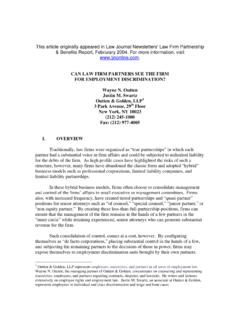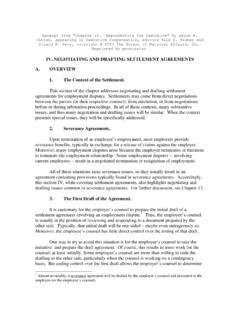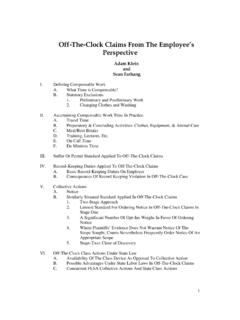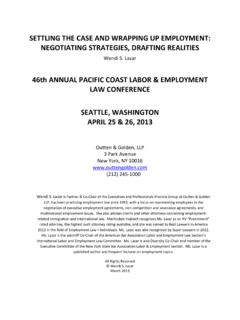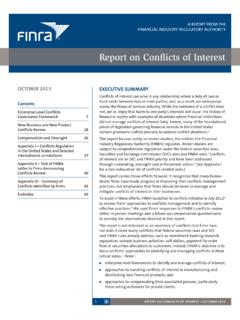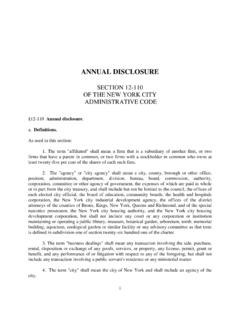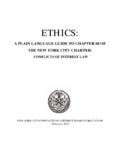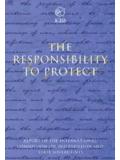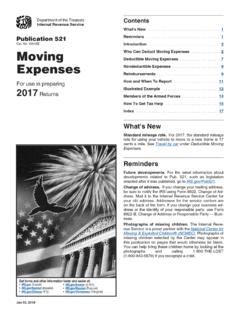Transcription of This article originally appeared in Law Journal ...
1 This article originally appeared in Law Journal Newsletters' Law firm Partnership & Benefits report , September 2004. For more information, visit CLIENTS: To Whom Do They Belong? By Wayne N. Outten Douglas C. James The answer is, nobody. When a partner leaves a law firm , the parties have to allocate various partnership rights, assets, and other interests.
2 They may allocate most of these interests in any way that they choose. They may not, however, allocate clients, perhaps the most valuable of partnership assets. The client alone decides whether to remain a client of the firm , to leave with the departing partner, or to choose another attorney. law firms and departing partners have an ethical obligation to handle these situations in a way that is consistent with the principle of client choice. I. The Client s Right to Choose Clients have an absolute right to choose their attorneys, including the right to end attorney-client relationships without cause.
3 [T]he right to change attorneys, with or without cause, has been characterized as universal ; it finds its origins in the English common law. Echlin v. Superior Court of San Mateo County, 90 63, 65 (Cal. 1939) (internal citations omitted). This unfettered right necessarily includes the right to select a departing partner over the remaining partnership or, in the event of partnership dissolution, one partner over another. See Cohen v. Lord, Day & Lord, 550 410 (1989). Under common law, the client s right to choose her attorney has been regarded as necessary to ensure zealous representation.
4 It is unquestioned that a client has the right to terminate the relationship of attorney and client at any time, with or without cause. That right is afforded him by the law because of the peculiar nature and character of the relationship, which in its very essence is one of trust and confidence. It is a right for the benefit of the client, and is intended to save him from representation by an attorney whose services he no longer Gordon v. Mankoff, 261 888, 89-90 (1931). See also Sohn v. Brockington, 371 1089, 1093 ( 1 Dist.)
5 , Jun 13, 1979); Herman v. Prudence Mut. Cas. Co., 235 346 ( 1 Dist., Feb 19, 1968); MacLeod v. Vest Transp. Co., 235 369 ( , Sep 25, 1964); State ex rel. Seifert, Johnson & Hand v. Smith, 110 159 (Minn., Jul 07, 1961); De Korwin v. First Nat. Bank of Chicago, 155 302 ( , Aug 23, 1957); In re Lachmund's Estate, 170 748 (Or., Jul 02, 1946). 1 This absolute right to choose is not without conditions. It is limited by, for example, conflicts of interest, the client s ability to pay for services, and the attorney s right to decline engagement.
6 Howard v. Babcock, 863 150, 159 (Cal. 1994). Moreover, while a client may terminate the attorney-client relationship for any reason, that right is conditioned on, among other things, the right of the terminated attorney to recover the value of services already rendered. Marshall v. Romano, 10 Misc. 113,114 ( 1932). That topic is discussed below. II. Restrictive Covenants as Unreasonable Restraints Rule of The Model Rules of Professional Conduct states as follows: A lawyer shall not participate in offering or making: (a) a partnership, shareholders, operating, employment, or other similar type of agreement that restricts the right of a lawyer to practice after termination of the relationship, except an agreement concerning benefits upon retirement.
7 1 or (b) an agreement in which a restriction on the lawyer's right to practice is part of the settlement of a client controversy. As interpreted by many courts, [t]he history behind the RPC and its precursors reveals that the RPC s underlying purpose is to ensure the freedom of clients to select counsel of their choice, despite its wording in terms of the lawyer s right to practice. Jacob v. Norris, McLaughlin & Marcus, 607 142, 146 ( 1992). See ABA Formal Op. 61-300 ( Clients are not merchandise[,] [l]awyers are not tradesmen, and restrictive covenants inappropriately barter in clients.)
8 ; see also ABA Informal Op. 68-1072. Accordingly, clauses in partnership agreements that prohibit departing attorneys from representing clients of their former firms have been held to be unenforceable as against public policy. See Meehan v. Shaughnessy 535 1255 (Mass. 1989)(interpreting agreement as permitting representation of firm 's clients by departing partners in order to avoid violating rule against anticompetitive agreements); Dwyer v. Jung, 336 498 ( 1975) (covenant not to do business with firm 's clients void); Hagen v.
9 O'Connell, Goyak & Ball, 683 563 (Or. 1984) (non-competition agreement void); Cohen v. Graham, 722 1388 (Wash. 1986)(agreement not to represent former firm 's clients unenforceable). Further, most jurisdictions have found that clauses that impose financial penalties on former partners who represent firm clients also violate public policy. See Anderson v. Aspelmeier, Fisch, Power, Warner & Engberg, 461 598 (Iowa 1990)(forfeiture of partnership interest for causing "detriment" to firm by withdrawing and competing held void); Jacob v.
10 Norris, McLaughlin & Marcus, 607 142 ( 1992)(agreement barring compensation, including percentage of annual draw, to withdrawing partners who represent clients of firm 1 Covenants that condition or limit legitimate retirement benefits based on an attorney s withdrawal from practice or non-competition are explicitly permitted. See generally Borteck v. Riker, Danzig, Scherer, Hyland & Perretti, 844 521 ( 2004); Donnelly, v. Brown, Winick, Graves, Gross, Baskerville, Schoenebaum, and Walker, , 599 677 (Iowa 1999)(retirement benefits conditioned on not practicing law in the state of Iowa).)
